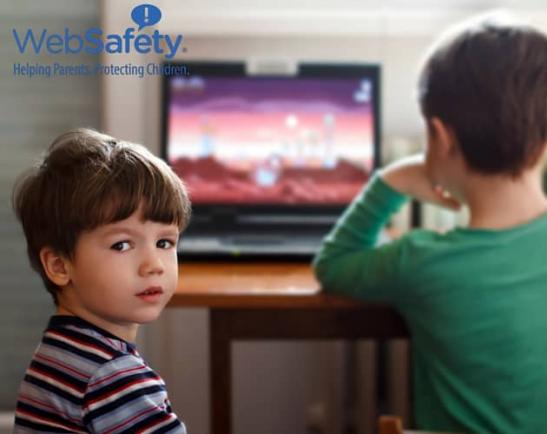
If you want to really get to know your children, maybe it's time to meet them online. Chances are, they're spending more time there than you think.
In fact, according to a 2015 Pew Research Center report, 92 percent of teens go online daily, while 24 percent of them report being online "almost constantly." Of course, accessing the Internet is easier than ever with nearly three-quarters of teens owning a personal mobile device.
For today's kids, that means that popular social media websites and applications like Facebook, Snapchat, Instagram and others are just a finger tap away. And for you, it means you've got a whole lot of reasons to worry.
Undermining safety
Forget annoying businesses that harvest your information for marketing purposes because when your kids are accessing social media, they may be putting themselves in greater peril than simply unwanted advertising. According to the San Diego District Attorney Office, of the 45 million Internet users aged 10 to 17, 1 in 5 has been sexually solicited online, 1 in 4 has encountered unwanted pornography and nearly 60 percent have communicated with strangers.
It's not just the strangers who pose a threat to your children's safety either. A 2011 study from Casa Columbia reported teens who regularly used social media were more likely to experience an increased risk of smoking, drinking and drug use. This phenomenon could be due to the peer pressure of seeing classmates and friends partying, as well as the increasing frequency with which social media is used as a marketplace for drugs and alcohol.
Cyberbullying
If you thought school was hard when you were a kid, think about this: Your children don't even have to be at school to have trouble with bullies. With the social media ubiquity provided by mobile devices, bullies no longer need class bells or school grounds to taunt their peers. And their efforts don't go unnoticed. According to Internet Safety 101, 92 percent of social media-using teens have witnessed cruel behavior online. Cyberbullying can lead to depression, substance abuse and other self-destructive behaviors in its victims.
Social depression
You'd think connecting with friends and family online would be a natural mood lifter, but research actually reports the opposite. According to the American Association of Pediatrics, preteens and teens who spend a good deal of time on social media sites can begin to exhibit symptoms of depression, due in part to the "intensity of the online world." This phenomenon, known as "Facebook depression" (although it applies to all social media platforms) can trigger feelings of social isolation and spur teens to risky and self-destructive behaviors.
Safeguarding your children
It's tough to keep kids safe when you don't know where they are, and that concept applies to protecting them from the dangers posed by social media use. So feel free to invade their privacy - a lot. Allow your child social media use only on the condition that you have their login information at all times. That way, you'll be able to see what your child views and posts through various platforms.
Of course, you'll be less likely to check up on your kids if you barely know how to check your email, so brush up on the most popular social media sites by creating your own profile and "friending" your kids. Talk with your children regularly about their online activity, and be firm about "device-free" time at the house - like during dinner, religious services or other family activities.
Also, you can only protect your kids when you know exactly what they're doing online, and some kids will be less than forthcoming about their social media use. That's why social monitoring apps can be particularly useful for parents. By installing a monitoring app on your child's mobile device, you'll be able to not only track your children's online activities but also prevent threatening material like pornography or solicitations from reaching them.
Additionally, a good monitoring app will also allow you to track your child's physical location at any time, using his or her device's GPS.
The WebSafety app can help you see what your child does online. WebSafety notifies parents of cyberbullying, inappropriate language, downloaded apps, visits to pornographic websites, and Facebook and Instagram activity. WebSafety even has a curfew blocker so you can turn the phone or tablet off.
These days, keeping your kids in line means knowing what they're doing online. What you don't know could already be hurting them. Check out WebSafety for more information on keeping the family "socially" safe.

